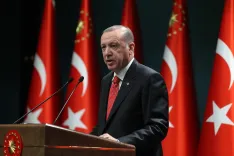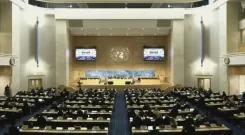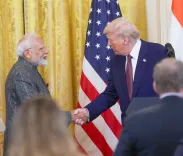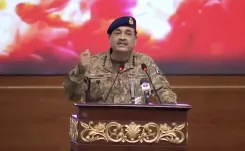Did Trump Sign a Proclamation Banning Travel from 12 Nations?
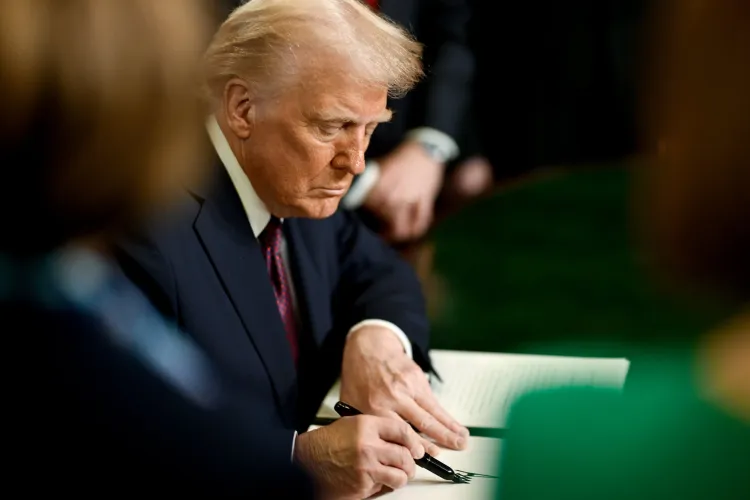
Synopsis
Key Takeaways
- Travel Ban: 12 countries banned, 7 restricted.
- National Security: Cited as the primary reason for the ban.
- Recent Attack: Linked to a terror attack in Boulder, Colorado.
- Vetting Concerns: Emphasized by President Trump in his statement.
- Legal History: Similar travel bans faced challenges in the past.
Washington, June 5 (NationPress) US President Donald Trump has enacted a proclamation that places a travel ban on 12 nations while also imposing restrictions on the entry of seven additional countries into the United States, citing national security concerns.
The 12 nations affected by this ban include Afghanistan, Burma, Chad, Congo, Equatorial Guinea, Eritrea, Haiti, Iran, Libya, Somalia, Sudan, and Yemen.
Furthermore, the proclamation also partially limits the entry of nationals from seven other nations: Burundi, Cuba, Laos, Sierra Leone, Togo, Turkmenistan, and Venezuela.
This announcement follows a recent violent terror attack in Boulder, Colorado, targeting participants of a peaceful rally advocating for the safe return of Israeli hostages held by Hamas.
Trump stated, "The recent terror attack in Boulder, Colorado, has highlighted the significant threats to our nation presented by foreign nationals who have not undergone adequate vetting, as well as those who enter as temporary visitors and overstay their visas. We do not want them here," in a video statement shared by the White House on Wednesday night.
Additionally, US Homeland Security officials revealed that the perpetrator of the Colorado attack, Mohammed Sabry Solima, was permitted entry into the country during the previous Biden Administration and had overstayed his visa.
White House Deputy Press Secretary Abigail Jackson expressed on social media that President Trump is taking measures to safeguard Americans from foreign individuals who pose security risks.
Jackson stated, "President Trump is honoring his commitment to protect Americans from dangerous foreign actors that wish to enter our nation and inflict harm. These logical restrictions are specific to nations that lack adequate vetting, show high visa overstay rates, or fail to provide identity and threat information. President Trump will consistently prioritize the safety of the American people," she stated on X.
The recent proclamation mirrors a series of travel restrictions issued during Trump’s first term, aimed at seven majority-Muslim nations that were prohibited from entering the US.
This included Iran, Iraq, Libya, Somalia, Sudan, Syria, and Yemen. These measures faced legal challenges before being repealed by President Joe Biden upon taking office in 2021.

